On May 31, 2023, InnoCharge CEO Dr. Manuel Lösch was invited to a panel discussion with representatives of the Federal Ministry of Economics and Climate Protection (BMWK) and manufacturers of Smart Meter Gateways (SMGWs), among others, on the “Act to Restart the Digitization of the Energy Transition”, which is already in force. There was a consensus that energy and charging management will play a central role in the next stage of the energy transition. The discussion focused on the implications of the new “Smart Meter” law and, in particular, the opportunities that the new version of the law will bring for innovation. The event on the law, which had only been approved by the Bundesrat two weeks previously, was organized by the German Energy Agency at the Future Energy Lab in Berlin.
Accelerated digitalization in the distribution grid as a central goal of the new law
The central aim of the law is to accelerate the digitalization of measurement and control in the distribution grid. One thing is clear: the energy transition cannot be achieved without energy and charging management for electricity customers. In particular, the new law aims to provide benefits for electricity customers with flexible consumption and/or own production to the fore: With a claim to Dynamic, spot-market-linked electricity tariffs (for everyone from 2025) and new price caps for the communication-capable smart meters required for this (modern metering device + smart meter gateway = usually EUR 20/year).
Next stage of the energy transition requires intelligence to control flexible devices
The new attempt with a “law for a new start” reflects the fact that in the past there was some legal ambiguity and regulatory improvement potential in the ecosystem around “smart metering systems”. The meeting between the responsible Federal Ministry for Economic Affairs and Climate Protection, manufacturers of smart meter gateways such as Power Plus Communications (PPC) and Theben Smart Energy as well as disruptive users who create added value with the infrastructure also provided plenty to discuss.
There was a consensus that market-oriented and grid-friendly energy and charging management will play a central role in the next stage of the energy transition. And also about the fact that the German smart metering approach has so far experienced some unpleasant delays, but that a technically very mature, secure and potentially exportable infrastructure for mass rollout is now available – by international standards. The statutory rollout of 15 million “smart metering systems” in Germany is intended to ensure that the increasingly strained electricity grids do not collapse under the 15 million electric vehicles, 6 million heat pumps and 80 % renewable electricity generation targeted by 2030. However, intelligent control of flexible systems in the electrical energy system is needed to leverage the potential of the infrastructure.
Cost-cutting energy and charging management offers direct added value for electricity customers
It is clear that communication-capable smart meters only form a basic infrastructure for controlling the distribution grid. Additional solutions are needed to leverage benefits, which is why the event was aimed at innovative companies and start-ups in the new digitalized energy world. Direct benefits for electricity customers with flexible loads arise in particular from new energy management solutions, such as those offered by InnoCharge for the cost-reducing optimization of flexible electric vehicle charging.
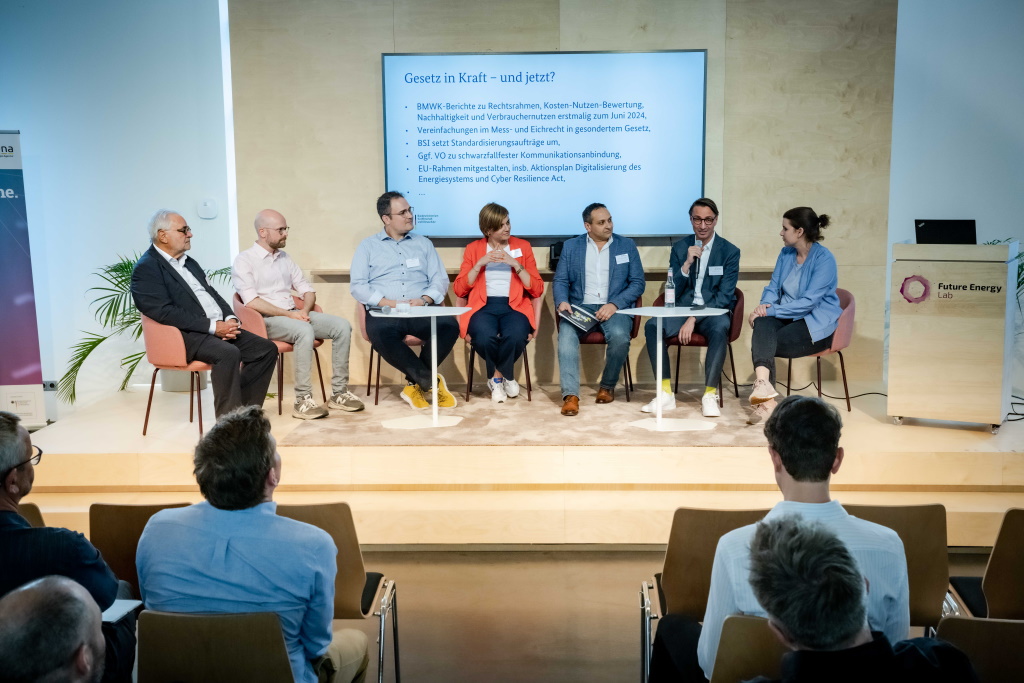
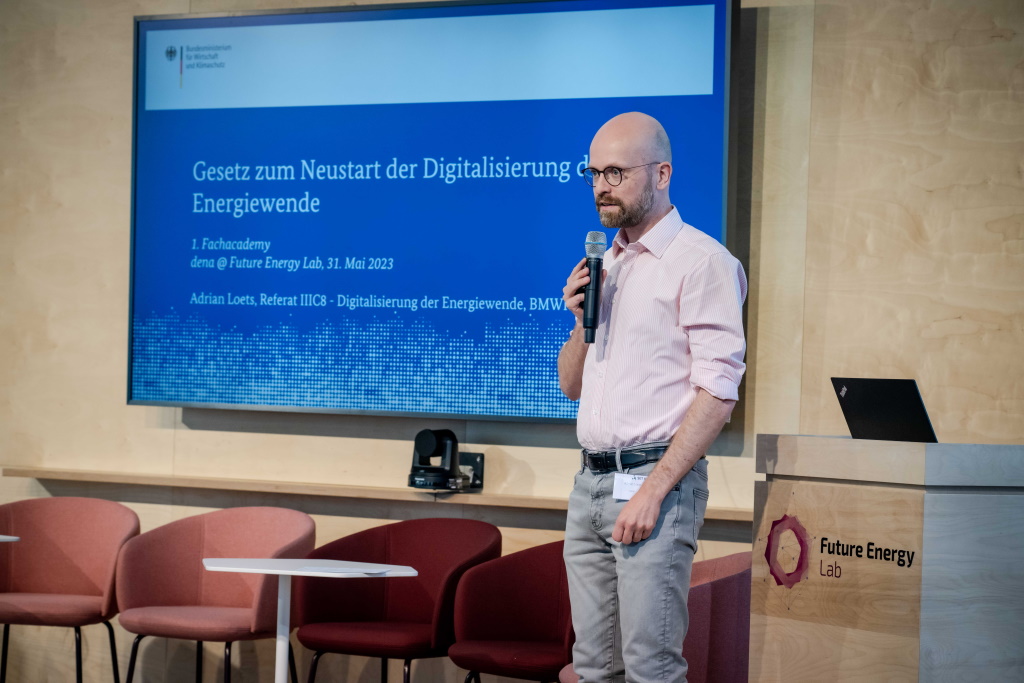
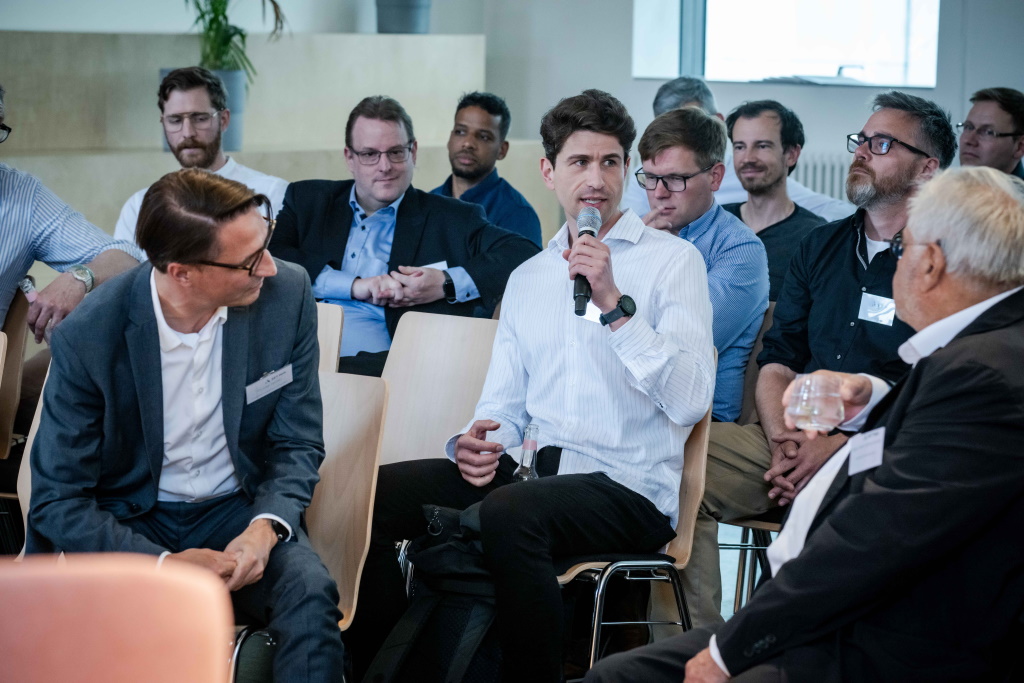
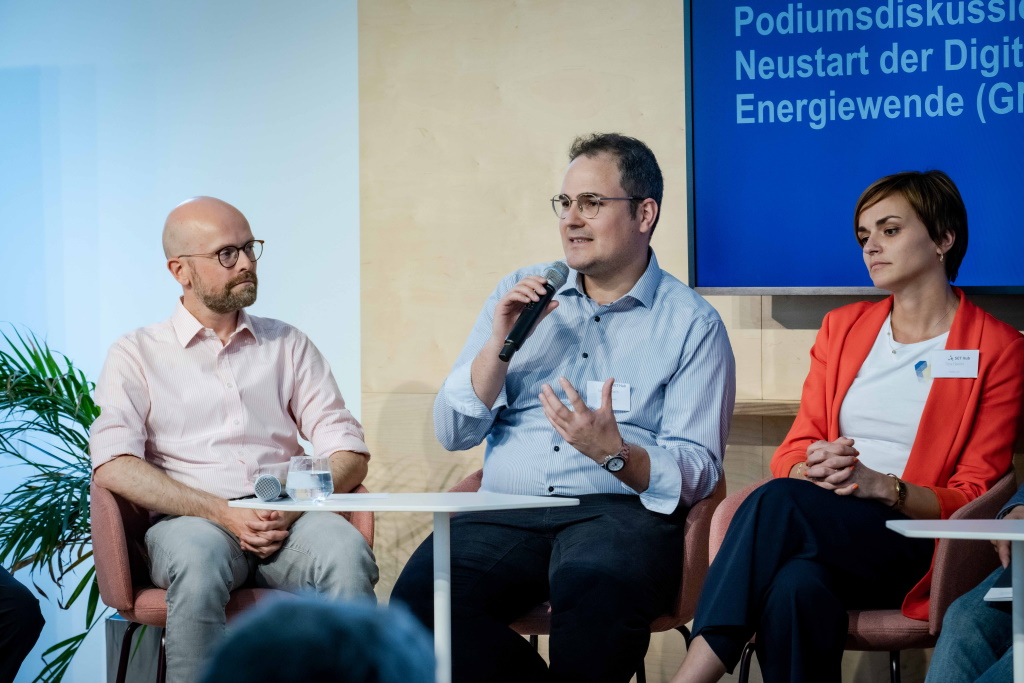
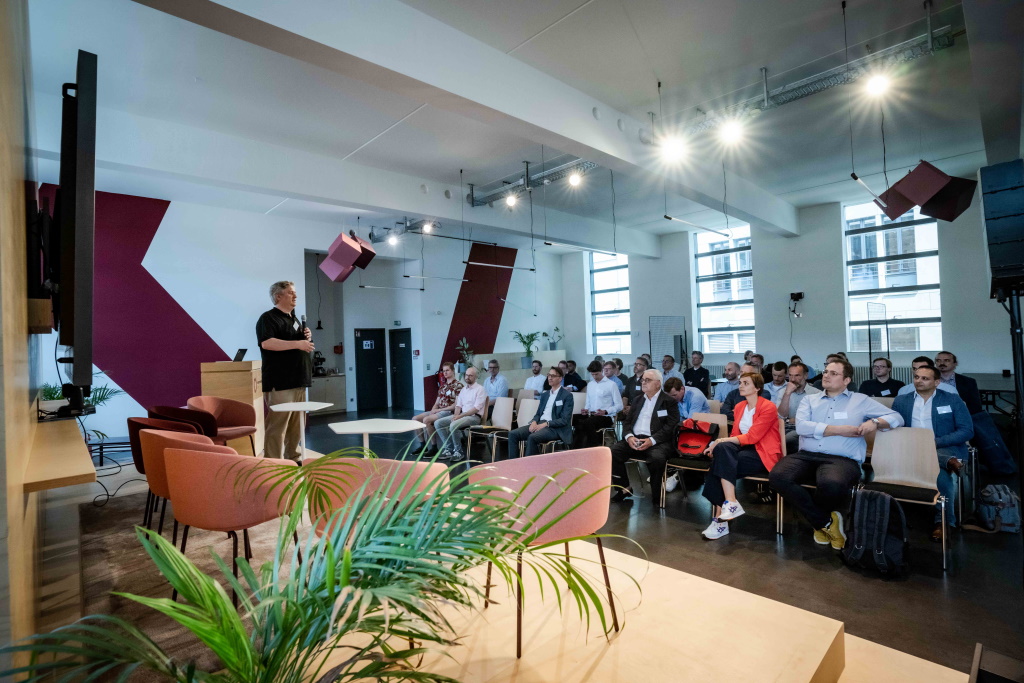
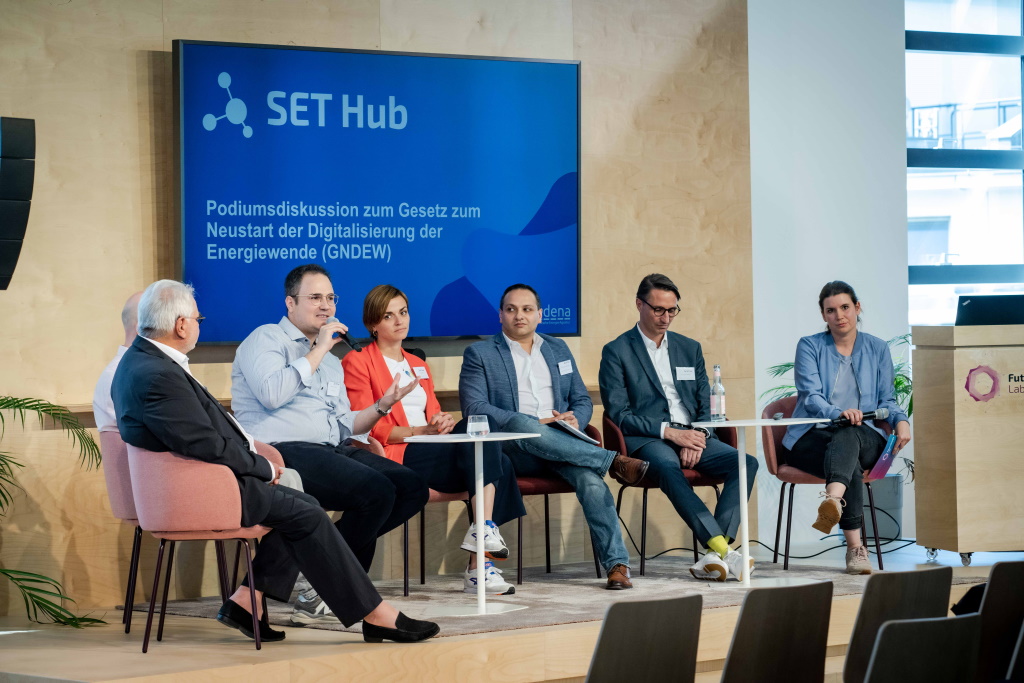
(Photos: dena/Claudius Pflug)
